Pizza is practically made for experimenting with flavors, and there’s no better way to do just that than by stocking your kitchen with a variety of herbs and spices.
From traditional Italian seasonings to bolder spices like cumin and mustard powder, adding some kick to your pizza sauce can be as simple as reaching into the pantry.
If you’re looking for inspiration on how to take that basic red sauce up a notch while still keeping it flavorful (and not too spicy!), this collection of my 15 favorite pizza-friendly herbs and spices is sure to give you plenty of ideas.
Read Also: 15 Best Salads To Go With Pizza

The Best Spices For Pizza Sauce
Pizza is the ultimate comfort food and when you’re making it from scratch, the key ingredient is homemade pizza sauce.
To infuse your sauce with flavor that your guests will love, reach for a fragrant blend of spices.
Here’s my collection of the 15 best spices to take your pizza sauce from ordinary to extraordinary:
1. Oregano
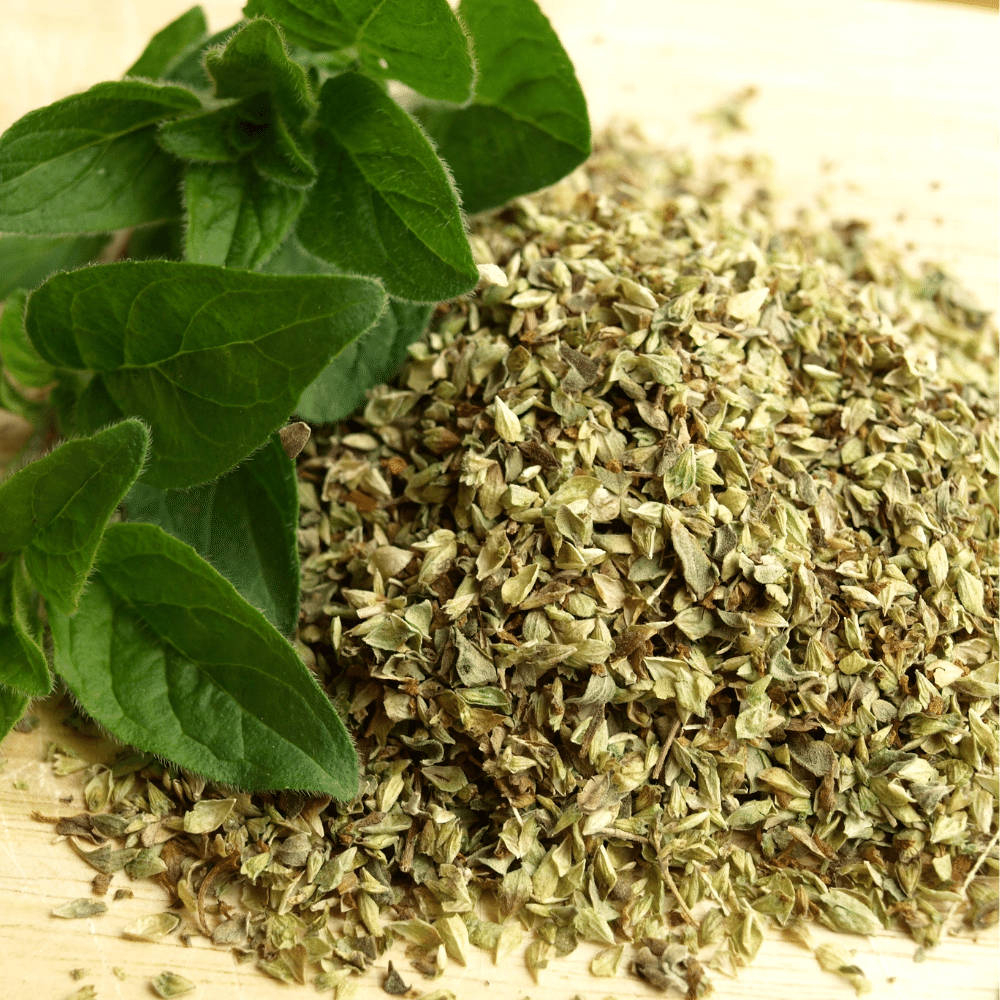
Oregano is a popular herb that has been used for centuries in Italian cuisine.
It adds a unique flavor to dishes; earthy, musty, green, hay-like, and minty all at the same time.
It’s also known for its strong aroma and slightly bitter taste.
When using oregano in pizza sauce, it’s best to keep it subtle but still present enough to get the full flavor profile of the dish.
A good rule of thumb is about 1/4 teaspoon per cup of tomato sauce or 1/2 teaspoon per pound of ground beef.
This will give your pizza a nice herby flavor without being too overpowering.
Remember that when cooking with oregano you can always add more if needed but it’s hard to take away any excess once added!
2. Red Pepper Flakes
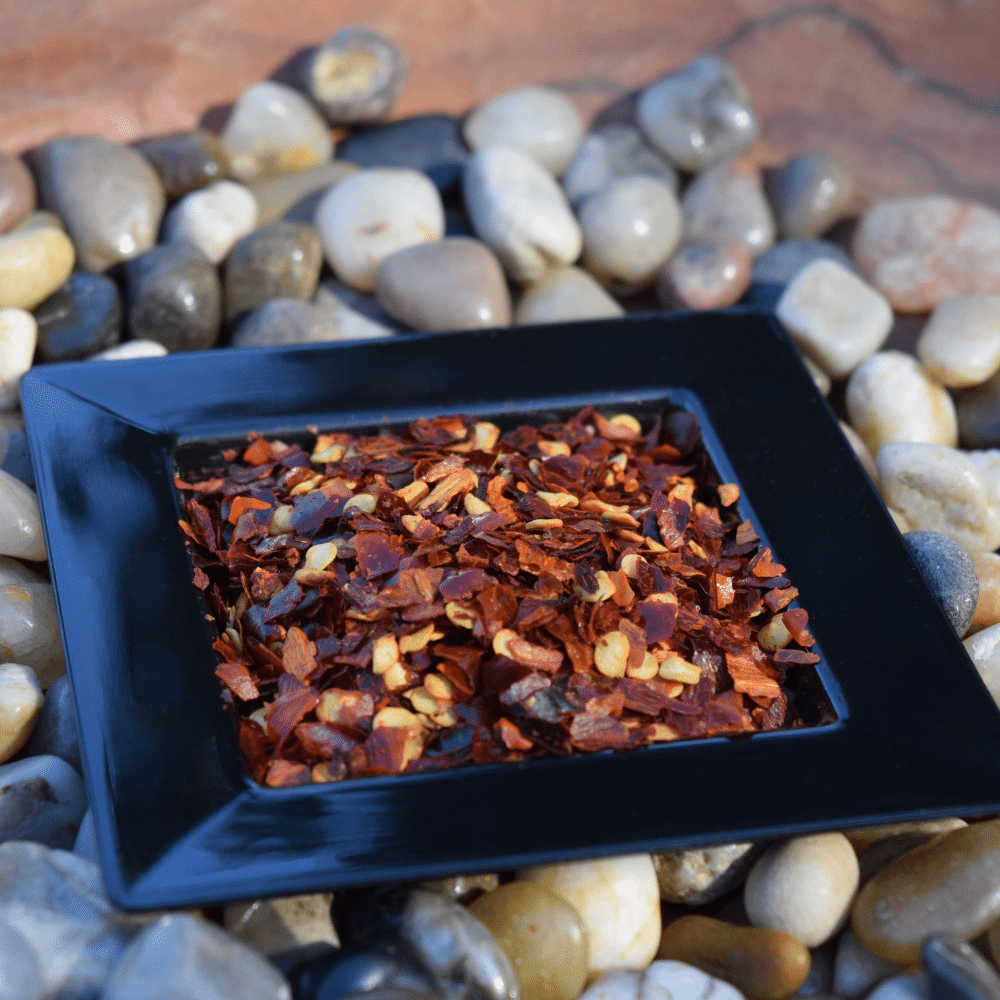
Red pepper flakes add a subtle yet distinctive flavor to any dish.
The taste is slightly sharp and earthy, with just the right dose of spiciness to give your dish an extra kick.
When it comes to pizza sauce, you don’t have to go overboard with red pepper flakes – a pinch or two should do the trick!
This will be enough for that little bit of heat without overpowering the flavor of the other ingredients in your pizza.
It’s best to start small and then adjust according to your own personal preference.
A few shakes should be plenty if you’re looking for mild heat but if you want something more intense, gradually increase the amount until you find your perfect balance of spice and flavor!
3. Rosemary
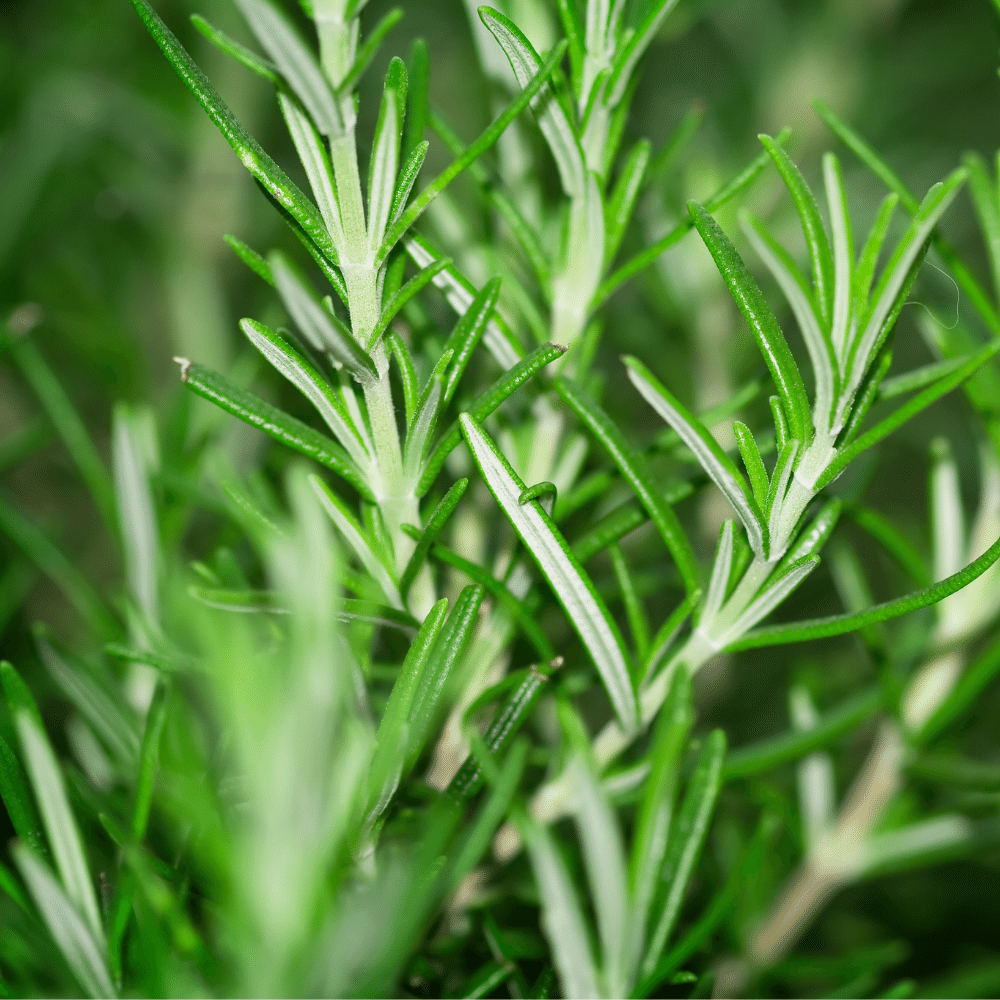
Rosemary is a powerful herb that adds an incredible depth of flavor to any dish.
Its strong taste has lemony-pine notes and can also be described as minty, sage-like, and peppery.
Due to its intense flavor, it’s best to start with small amounts.
A little goes a long way when it comes to rosemary!
So if you are adding it in your pizza sauce or other savory dishes, use about 1/4 teaspoon for every cup of sauce.
If the recipe calls for fresh rosemary leaves instead of dried ones, then use around twice the amount since the flavor will be more concentrated.
Rosemary pairs deliciously with garlic, onions, and tomatoes – making it perfect for pizza sauces! It also complements beef and poultry dishes very well too.
With this flavorful herb in mind, you can now create delicious meals that burst with flavor!
4. Italian Seasoning

Italian seasoning is a blend of herbs and spices, including oregano, thyme, basil, rosemary, garlic powder, and red pepper flakes.
It has an all-around savory flavor with hints of sweetness here and there.
When it comes to pizza sauce specifically, the amount of Italian seasoning you should add depends on your personal taste preference.
As a general guide though you can start by adding 1 teaspoon per cup of tomato sauce.
Taste as you go and adjust according to what you like best!
Italian seasoning pairs especially well with tomatoes so don’t forget to sprinkle some when making other dishes such as pasta sauces or stews too!
5. Paprika
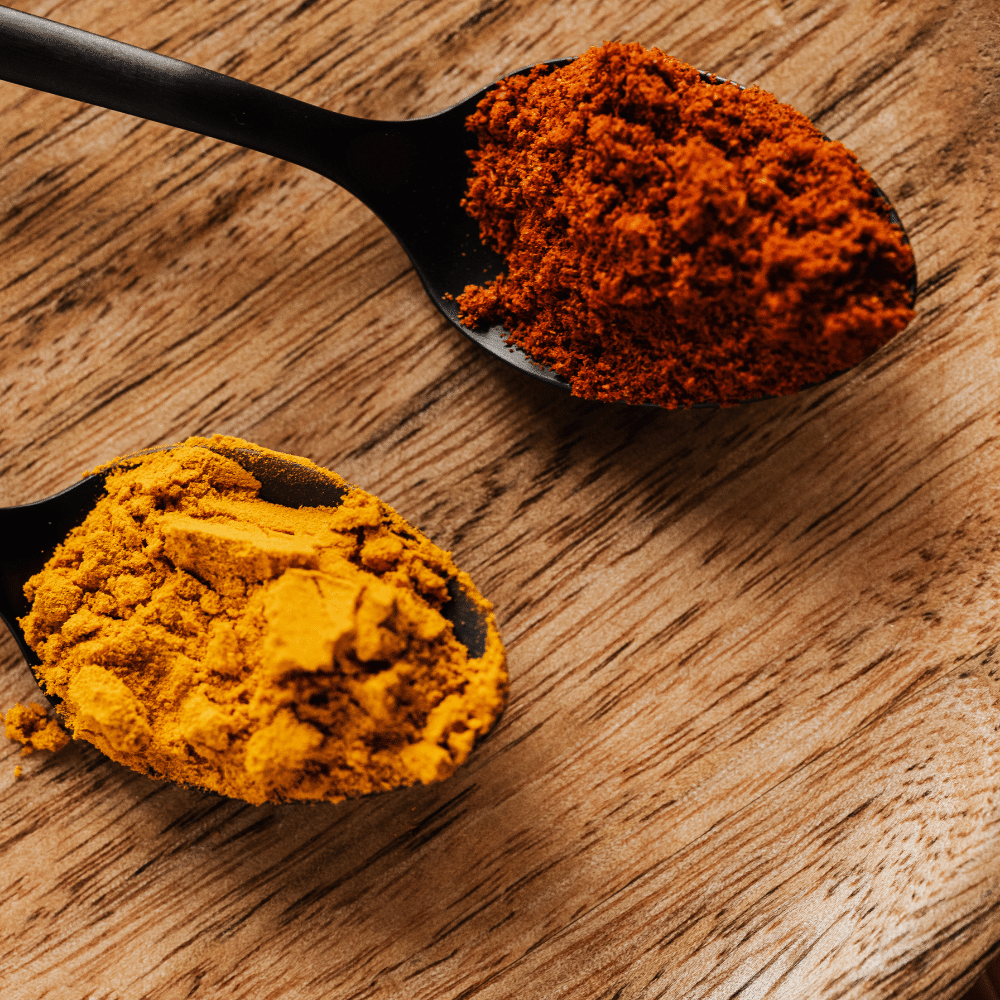
Paprika is a great way to add some flavor and color to your pizza sauce.
Depending on the type of paprika you use, the taste can vary from mild and sweet to hot and spicy.
Mild paprika will give your sauce a subtle smokiness without overpowering it.
Sweet paprikas are perfect for adding an earthy sweetness that balances out the other flavors in your dish.
And if you want something more intense, then go for hot paprika – it’ll bring plenty of heat!
When it comes to how much you should add, a good rule of thumb is one teaspoon per cup of tomato sauce.
If that’s too strong for your liking, start with half a teaspoon or less and adjust according to your preference.
6. Thyme
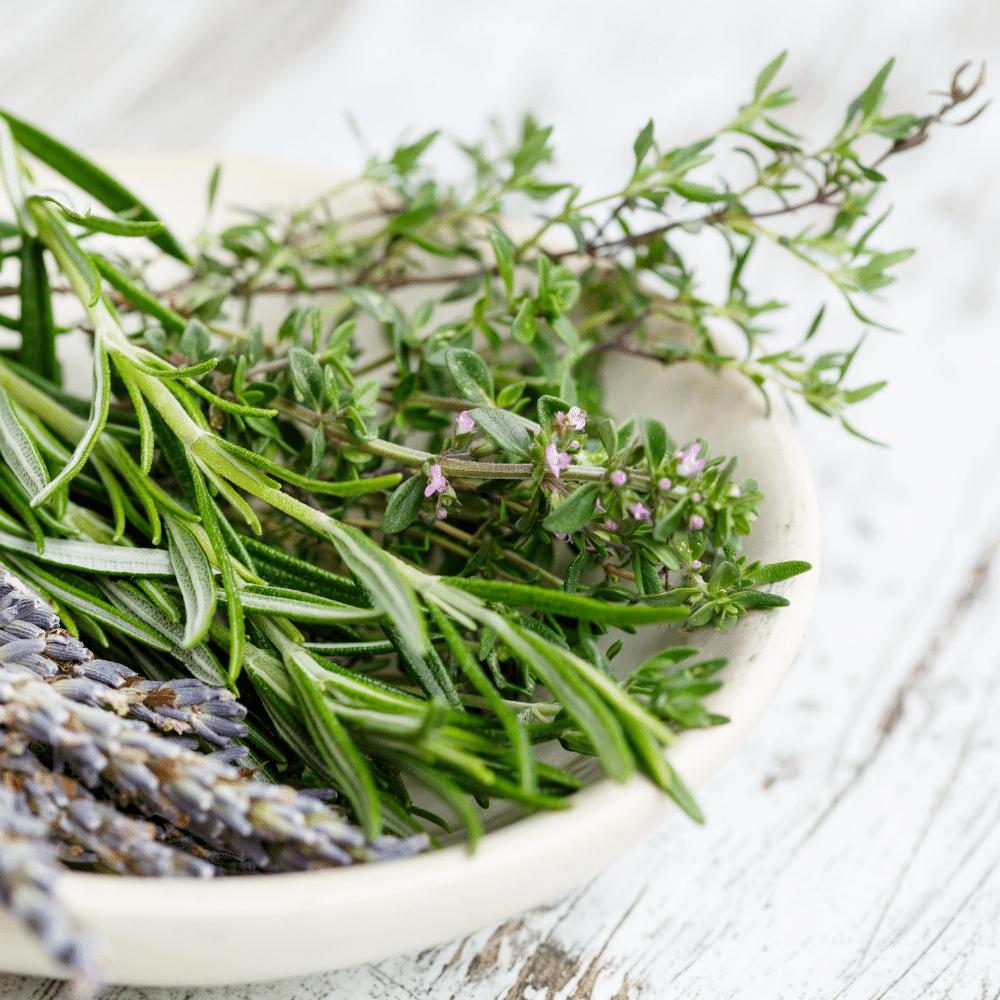
Thyme is a wonderful herb to add to your dishes as it adds a unique flavor.
As for how much you should add to your pizza sauce?
That really depends on the size of your batch and how strong you want the flavor to be.
A good starting point would be about 1 teaspoon of dried thyme per 4 cups of sauce or 2 teaspoons of fresh thyme leaves per 4 cups of sauce.
Taste as you go and adjust according to your preference!
7. Sugar
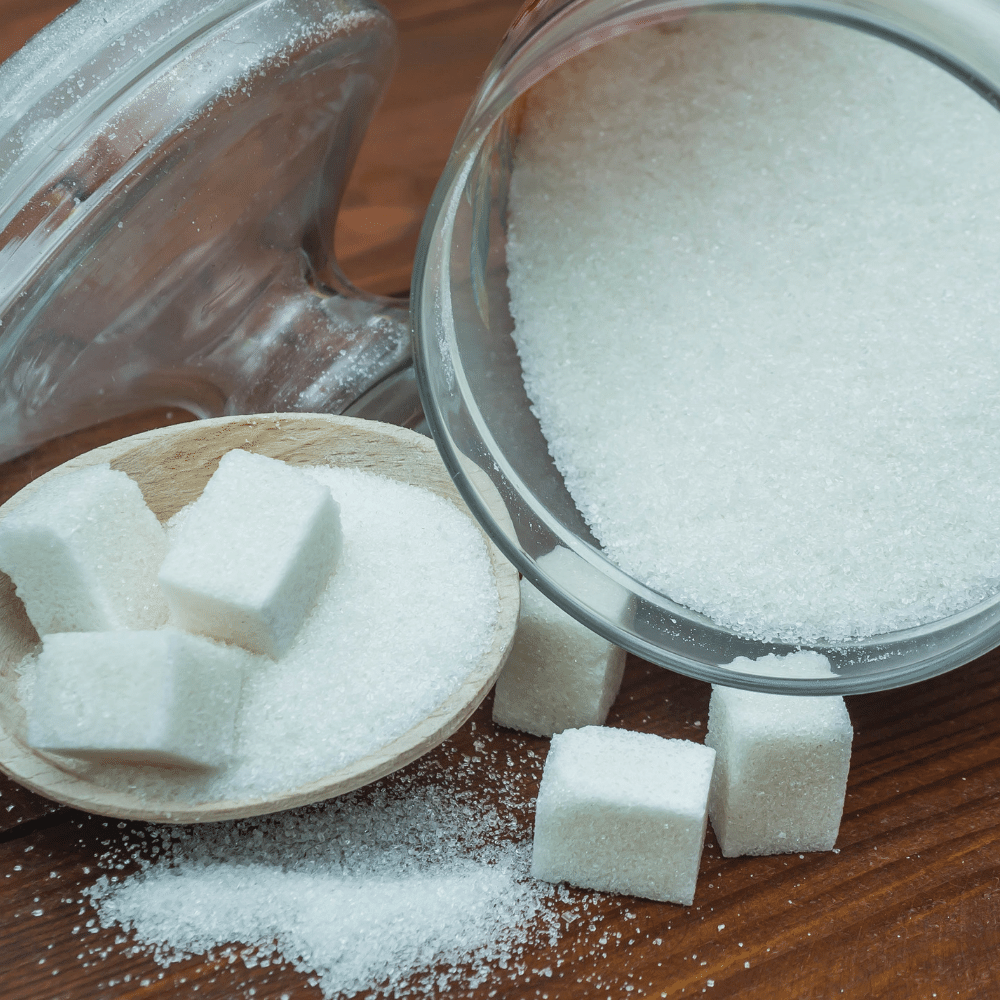
Sugar is a great way to enhance the flavor of any dish – including pizza sauce!
Sugar adds sweetness, which can balance out other flavors and make them more enjoyable.
It also helps caramelize the ingredients in your sauce, creating an appetizing aroma.
When adding sugar to your pizza sauce, be sure not to add too much or it will overwhelm the flavor profile.
Start with just a teaspoon of sugar for every two cups; you can always add more if needed.
Taste as you go so that you don’t overdo it and end up with an overly sweet sauce.
Be sure to also experiment with different types of sugars—like brown sugar or maple syrup—to create unique flavors!
8. Black Pepper

Black pepper is one of the most popular spices in the world and adds a sharp, robust flavor to any dish.
The aroma and flavor of black pepper are both woody, piney, and earthy with a hint of heat.
It’s also known for its strong pungency that can be described as “hot.”
When it comes to pizza sauce, you don’t need too much black pepper – just enough to give your sauce an extra kick!
A pinch or two should do the trick – any more than that could overpower the other flavors.
Black pepper pairs well with garlic, onions, oregano, basil, thyme, and other herbs so feel free to experiment with different combinations until you find something you like!
9. Basil

When I add basil to my pizza sauce, I’m always surprised by how its sweet and savory flavor balances out the other ingredients.
It has a hint of mint, anise, and pepper that adds complexity to the overall taste.
At first, you get a robust hit of black pepper but it quickly mellows into a subtle sweetness.
I like to use about 1 teaspoon per cup of sauce for optimal flavor.
This gives the perfect balance between boldness and subtlety – any more than that could overpower your dish!
10. Chili Powder
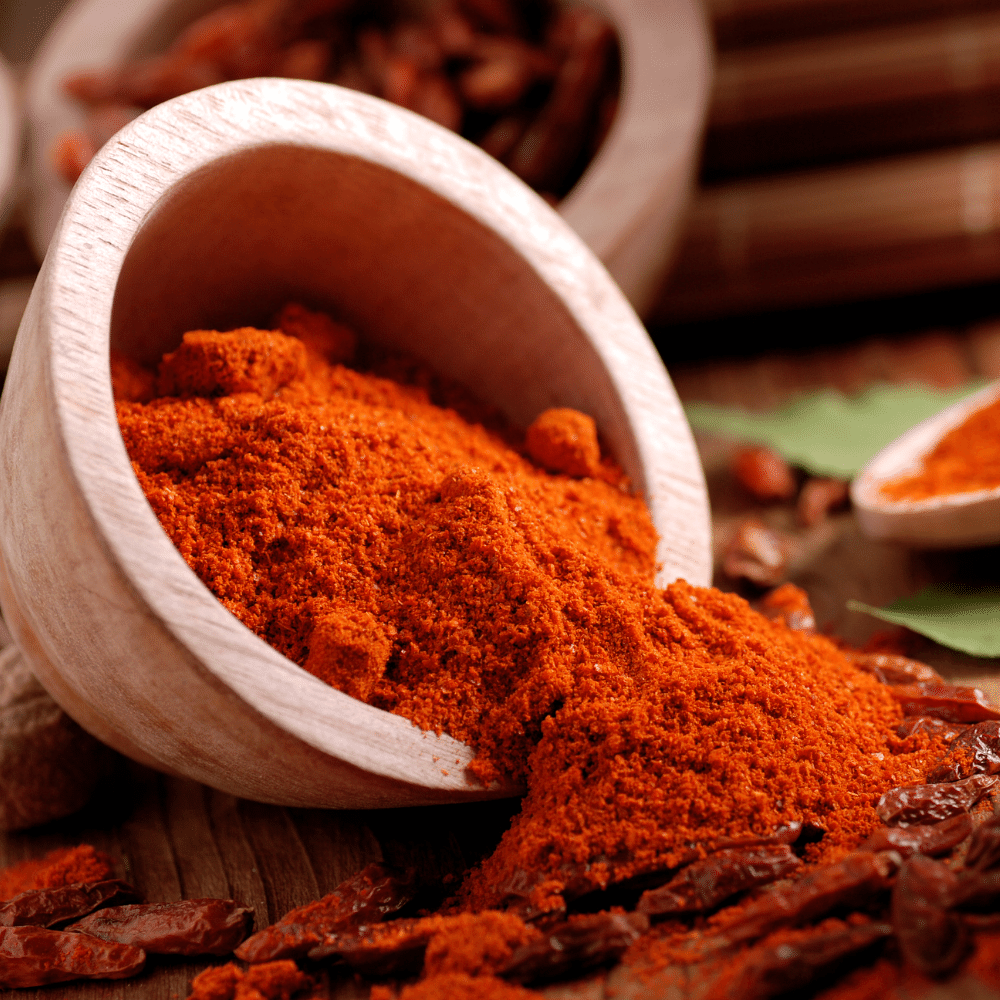
I find that chili powder adds a mild to moderately spicy flavor to pizza sauce, depending on how much cayenne pepper is in the mixture.
When I make my own pizza sauce using chili powder, I usually add just enough to give it a subtle kick without overwhelming all the other flavors.
I think about half a teaspoon of chili powder should do the trick – but adjust as needed based on your own preferences and the kind of chili powder you’re using!
11. Sea Salt

When I add sea salt to my pizza sauce, I notice a crunchier, sharper flavor than regular iodized salt.
The difference is subtle but definitely noticeable.
As for how much you should use – just enough to give your sauce an extra bit of flavor.
A pinch or two should be plenty – any more than that could overpower the other flavors in your sauce!
Sea salt pairs wonderfully with garlic, onions, oregano, and basil.
12. Garlic Powder
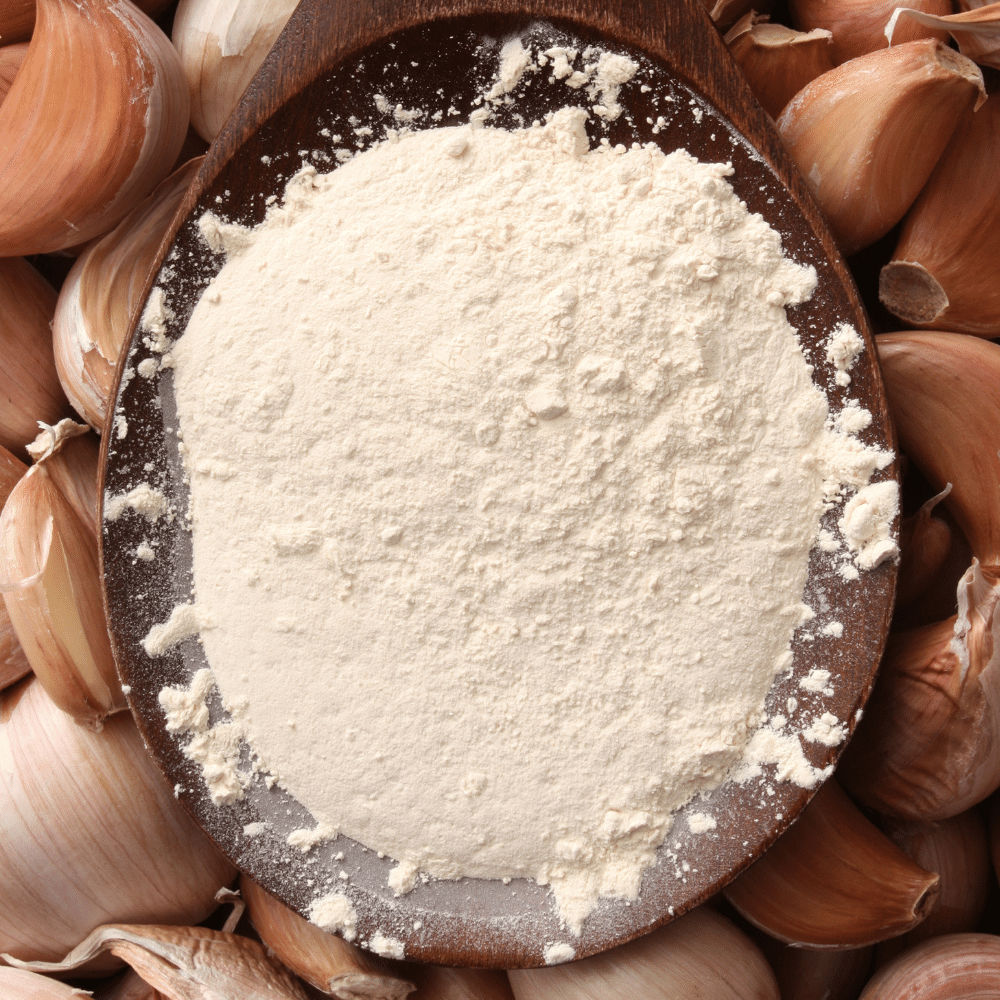
When I add garlic powder to my pizza sauce, I get a milder and sweeter flavor than what fresh-chopped garlic would give.
The taste is still garlicky, but it’s not as intense or pungent.
It also doesn’t have the caramelly undertones that you’d get from roasted or sautéed garlic.
I find just a pinch of garlic powder does the trick for pizza sauce – any more than that can become overpowering.
13. Onion Powder

When I add onion powder to my pizza sauce, it adds a sharp, sweet smell with a hint of warmth – just like the smell of a beautiful whole onion that’s been warmed by the sun.
The flavor is also quite noticeable but not too overpowering.
It’s definitely an added bonus when it comes to making homemade pizza!
I usually use one tablespoon of onion powder per half cup of chopped fresh onions in any recipe.
This will give you enough flavor without taking away from the other ingredients in your sauce.
If you want more intense flavor, feel free to add more – just remember that it can be pretty potent if used in large amounts!
14. Cayenne Pepper

Cayenne pepper adds a subtle yet distinctive flavor.
Despite its high heat levels, the primary taste of cayenne is more defined by its fiery effect on your taste buds than any strong aroma.
I personally like to add just a pinch or two of cayenne pepper – enough so that the spice enhances the other flavors in the sauce without overpowering them.
This way, you can still enjoy all the deliciousness that comes with a homemade pizza!
15. Marjoram

Marjoram gives an earthy and woodsy flavor with notes of balsam-like pine and citrus.
It has a warm, sharp, and bitter taste that is similar to oregano and thyme.
I find that just a pinch or two of marjoram adds the perfect amount of flavor to the pizza sauce – any more than this can be overpowering!
The subtle but distinct flavor makes it a great addition to your favorite sauces.
Related:
The 13 Best Spices For Alfredo Sauce
15 Best Herbs and Spices for Fried Rice
13 Best Herbs and Spices For Mushroom Soup
11 Best Herbs and Spices For Minestrone Soup
11 Best Herbs and Spices for Kale Soup

The 15 Best Spices For Pizza Sauce
Ingredients
- Oregano
- Red Pepper Flakes
- Rosemary
- Italian Seasoning
- Paprika
- Thyme
- Sugar
- Black Pepper
- Basil
- Chili Powder
- Sea Salt
- Garlic Powder
- Onion Powder
- Cayenne Pepper
- Marjoram
Instructions
- Pick your favorite spices from this collection to use in your pizza sauce recipe.
- Prepare the rest of your tasty meal.
- Enjoy in no time!
Hi, I'm Benjamin. I love cooking, long walks, and my girlfriend! Here you’ll find simple and delicious recipes that you can make in 30 minutes or less.

